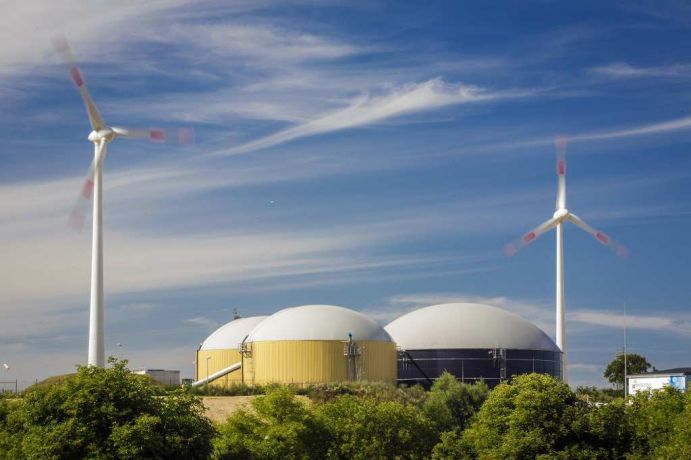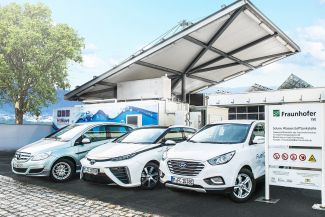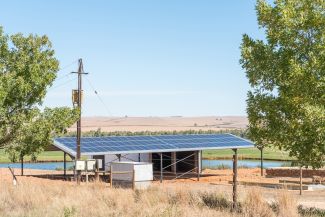Energy
Germany is reforming its energy supply. As part of its climate change policy for the period up to 2020, the German government aims to reduce greenhouse gas emissions by 40 percent compared with 1990. The long-term target is to cut emissions by between 80 and 95 percent by 2050. As 80 percent of all greenhouse gas emissions in Germany today stem from energy generation, a fundamental reform of the country’s energy supply structure, with a move towards renewable energy sources and more efficiency, is key in improving climate change mitigation.
Germany's energy switch entails using renewable energy to secure a sustainable energy supply in the electricity, heating and mobility sectors. The energy switch will reduce the use of fossil fuels. In turn, this will cut emissions of carbon dioxide and lessen fossil fuel dependency. Renewable energy sources will replace fossil fuels as part of an ongoing process. By 2050, it is planned that renewable energy will cover some 60 percent of gross energy consumption and 80 percent of gross electricity consumption. Alongside the expansion of renewable energy sources, energy efficiency forms the second key pillar of the energy switch. Ultimately, by 2050, primary energy demand in Germany is to be halved compared with the figures for 2008.
People's livelihoods and prosperity are reliant on a functioning energy supply system. The energy system of the future must guarantee that Germany becomes one of the most energy-efficient and environmentally sound economies in the world while retaining competitive energy prices and high levels of prosperity. Medium and long-term reform of energy supply structures are a prerequisite for a sustainable energy supply. The transformation process needed to achieve this affects both the fundaments of German industry and the country's infrastructure. Mines, power stations, pipelines, wind farms and solar energy systems, electricity grids, vehicles, heating systems, and also roads, buildings, industrial facilities and information and communications systems must be adapted to work in the new system.
With the 6th Energy Research Programme – Research for an Environmentally Sound, Reliable and Affordable Energy Supply – the German government has set out the focus for its funding policy for the coming years. These measures are an integral part of Germany's High-Tech Strategy. The prime aim of the Energy Research Programme is to help meet the government's energy sector and climate change policy requirements. In addition, the pioneer role of German business in modern energy technology is to be extended, and technology opportunities secured and broadened.
To be a success, the energy switch depends largely on the extent to which new technology can be used to fulfil society's expectations, meet people's needs and win their acceptance and support.
Last updated on










